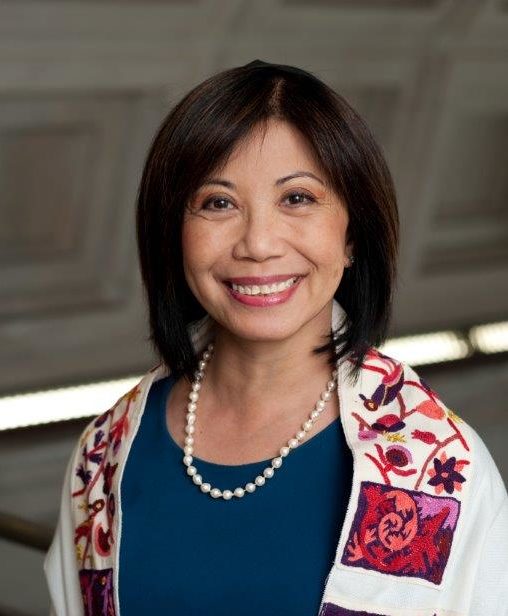As a concerned young adult living in Bangkok, I tried to make sense of the brokenness around me by doing volunteer work with like-minded meditation practitioners. Following the social action trail, we found ourselves in one of the many refugee villages along the Laotian/Thai border that continued to exist in the decade after the fall of Laos to communist rule in 1975. Weaving silently between rows upon rows of straw huts, I distributed extra rations collected from foreign agencies, arranging the day’s offerings in front of each dwelling. I made do with a smattering of Thai, French, and English, adding a slight bow and joining my hands together in the gesture of greeting and parting. As I walked up and down the rows of makeshift huts, I witnessed the dance of family members falling into each other’s arms, sometimes accompanied by keening wails and sometimes by muffled sobs. I also witnessed those who fell into long silences as they held out hope to be reunited with missing loved ones.
This flood of memories was released by this week’s Torah reading, Parashat VaYigash. Enter the audacious figure of Yehudah in our continuing story of deception, separation, and reconciliation. The Torah reading is triggered at the outset by Yehudah approaching what appears to be an all-powerful Egyptian vizier. He has undergone a lot of transformation and growth, soul-searching and a new sense of self, over the last few parshiyot. From being the brother who suggested selling Yosef to the Ishmaelites, he has gone through the deaths of his sons, the traumatic episode with Tamar, and has now come back to Egypt as his father’s trusted guarantor of Benjamin’s safety. But when he arrives at the moment of truth, can he bring his newfound identity from potential into action? With artful language of praise and persuasion, he ventures to speak on behalf of his brothers and offers himself into servitude in exchange for the freedom of their brother Benjamin.
I am intrigued by the musical design associated with this opening verse: VaYigash elav Yehudah – “Yehudah approached him” (Genesis 44:18). The melodic design mirrors and accentuates the text and sets up the emotional landscape of Yehudah’s discourse. The corresponding cantillation accent on ויגש vayigash, “he approached,” is a Kadma, as in “go forward,” like an opening volley slicing into the air. It rises into the middle accent of Azla on אליו elav, “him” which refers to Yosef as the figure being approached. In Ashkenazi cantillation, the voice ascends and floats in Azla, then dips down four tones in Revia mode over יהודה Yehudah.
The Kadma Azla cantillation reflects the vertical power dynamic between Yehudah and Yosef. Here is a musical plea that sets up Yehudah’s newfound maturity and increased capacity for compassion. The soaring notes embolden Yehudah to call attention to father Yaakov’s fear of losing two sons in the rest of his monologue: “But one is gone for me, and I said: ‘Alas, he was torn by a beast! And I have not seen him since.’ If you take this one from me, too, and he meets with disaster, you will send my white head down to Sheol in sorrow.” (Genesis 44:29)
Although one can find Revi’i, the Hebrew number “four,” in printed cantillation tables, Revia is the classic term. It corresponds functionally to rovetz, “lying down,” as in Targum Onkelos, the ancient Aramaic translation, on Exodus 23:5: “If you see the donkey of your enemy “lying” רביע/revia under its burden, would you refrain from helping him?” The pairing of the Revia cantillation with the word Yehudah assists the reader in descending gradually, as it were, to “lay down” with the new Yehudah. While he appears essentially powerless in comparison to the vizier Yosef, Yehudah has become a skillful and tactful peace broker between the brothers and their father.
Like the audacious Yehudah who found himself in a places of brokenness, may we muster the will to go forward in the spirit of Kadma Azla. And when we have reached the heights and brought down the walls of opacity, may we allow ourselves to descend gently just like the melodic line of Revia, “laying down” into the new and improved Yehudah who keeps pointing inward to p’nimiyut, that sustained effort to integrate external actions with the inner sense of self.
Rabbi Mira Rivera is a Chaplain Fellow at DOROT in New York City, following a year-long residency at Mount Sinai Hospital. She is co-founder of the Jewish Youth Chorus of Beit Midrash NYC. She received her Rabbinical ordination and an M.A. in Jewish Studies at The Jewish Theological Seminary in 2015.

